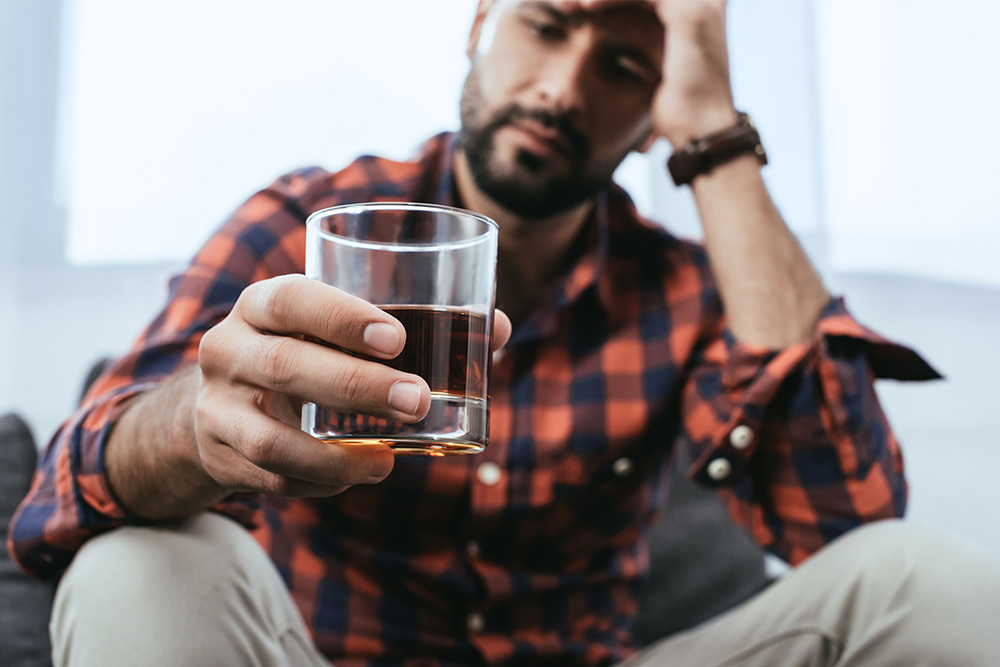Alcohol is one of the most commonly used drugs in the United States. Most American adults consume alcohol at least once in their lifetime. Among them, 6.7% will develop Alcohol Use Disorder. Alcohol consumption during COVID-19 lockdowns increased by 60%, presumably due to mental health issues and increased anxiety. Individuals who experience anxiety may turn to alcohol to alleviate these symptoms; however, substance use can exacerbate anxiety.
Anxiety is a common mental disorder that causes intense fear and uncertainty.
Anxiety can cause poor concentration, irritability, sleep disturbance, fatigue or tiredness, and can lead to alcohol dependence. Anxiety affects 40 million adults in the United States age 18 and older. Anxiety disorders cause excessive worry and nervousness. Symptoms include shortness of breath, fast heartbeat, nausea, a sense of impending doom, and fear of losing control, or of going “crazy.”
Alcohol is often consumed as a way to cope with those anxiety symptoms. Alcohol consumption can exacerbate those anxiety symptoms due to rebound anxiety: anxiety that is experienced in the absence of substance use.
People with anxiety tend to cope by self-medicating with alcohol or other substances.
Alcohol has been shown to increase levels of GABA (the compound responsible for calming your nerves), which can help people who are anxious feel at ease. Alcohol consumption can worsen over time leading to substance abuse, increased tolerance, dependence, and withdrawal symptoms, or other substance-related disorders. Substance Use Disorders are defined by impaired control over substance use leading to clinically significant impairment or distress, as manifested by substance-related signs and symptoms.
At first glance, it seems like alcohol would help with anxiety because it increases GABA levels; however, long-term substance use can cause anxiety.
GABA regulates the body’s neurotransmitters, which means that it helps to decrease anxiety as well as other mental health symptoms. The main issue between GABA and alcohol is that alcohol harms the production of this neurotransmitter. Studies show that alcohol’s effects on neurotransmitters deplete the production of GABA significantly enough to cause short- and long-term symptoms.
The side effects of prolonged alcohol use lead to other problems.
These side effects can lead to physical, emotional, and mental health problems that eventually require substance use treatment. It is important for those with substance use or anxiety issues to seek help from professionals so that they can learn coping skills to reduce substance dependence and additionally decrease anxiety symptoms.




